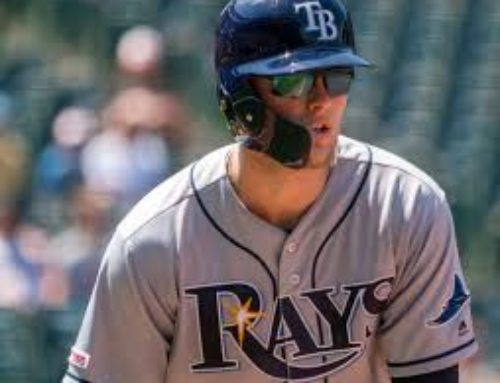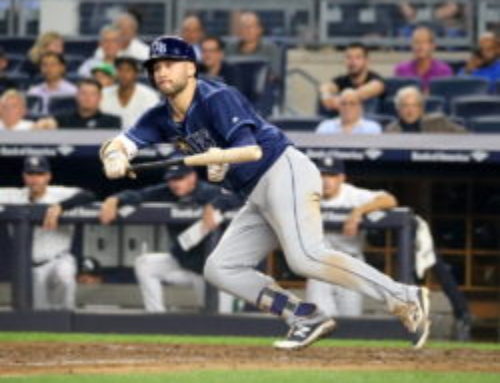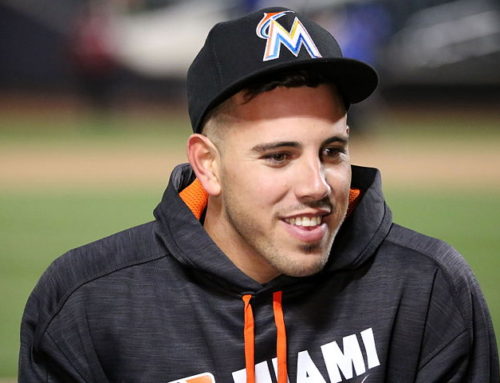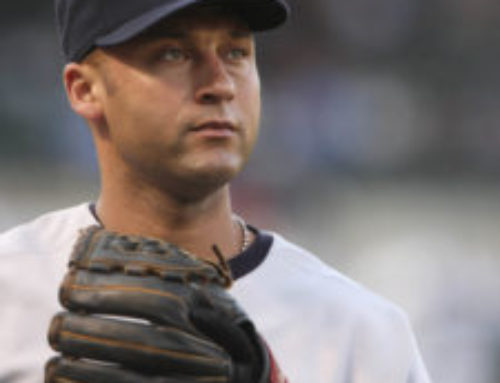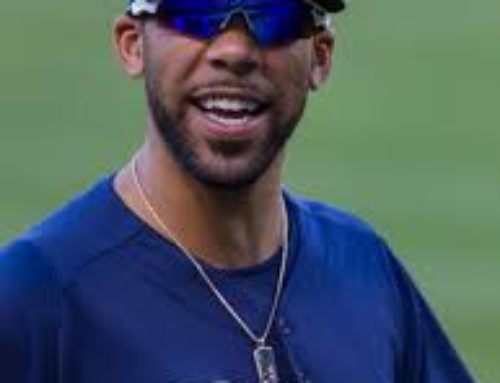Growing up in Tampa, Tony La Russa and Lou Piniella were Pony League and American Legion teammates. Now La Russa’s Oakland A’s and Piniella’s Cincinnati Reds are shooting for the World Series. Their youthful days in Tampa seem far away. But as families and friends attest, it was really only yesterday.
By JOEY JOHNSTON
The Tampa Tribune
(c) Tampa Bay Times. Originally published Oct. 2, 1990.
TAMPA — It was picture day at V.M. Ybor Elementary School, time for the first-graders to wear their nicest outfits and smile their sweetest smiles.
The smiling was easy for little Tony La Russa. But the nice outfit? He had different ideas.
“I remember arranging Tony’s clothes the night before — his shirt, his slacks, his good shoes,” said Oliva La Russa, his mother. “Then he came in and said, “No, Mama, I can’t wear that. I’m wearing my baseball uniform.’
“Baseball uniform? I said, “Oh, no, you’re not.’ But you know Tony. He talked me into it. When Tony put his mind to something, there was just no convincing him otherwise.”
So on picture day at V.M. Ybor Elementary School, when all the other children wore their Sunday best, 6-year-old Tony La Russa marched down the halls in his flannel baseball uniform. No one gave it a second thought. Even then, baseball seemed his destiny.
He always was the shortest and usually the skinniest player on his team. Maybe he looked a little frail and out of place, but there was never a question whether he belonged.
Just ask the regulars at Cuscaden Park, once the baseball capital of Ybor City. They’ll set you straight. Tony La Russa could play baseball, all right. Could he ever.
“The other players couldn’t keep up with him,” said Bob Cueto, La Russa’s older cousin. “They had no idea, no clue, what he was doing. He played on an entirely different level. I used to watch him in awe. I mean, he was still a kid and he was doing things like a major-leaguer. Hook-sliding. Playing hit-and-run. Unbelievable.”
The scene often changed. But whether it was Cuscaden Park, McFarland Park, Tampa Pony-Grad League, American Legion Post 248, Jefferson High School or the Oakland Athletics, the adjectives remained the same.
Tony La Russa: Organized. Popular. Fundamentally sound. Intelligent. A leader. All reasons why La Russa’s Athletics again are challenging for the World Series. All reasons why he became a Tampa legend.
He lived on instincts, seemingly inventing a new way to win every time out. He rarely made mistakes. Have the Tampa sandlots ever produced a better catalyst?
Doubtful.
“Tony could beat you with his bat, his glove or his legs. But most of all, Tony could beat you with his brain,” said Roy Carrasco, a La Russa teammate at nearly every level. “All those qualities that you associate with Tony La Russa as the Oakland manager, he was the same guy in Tampa way back when.”
Everyone knew La Russa had a higher calling. So on June 8, 1962, it was no surprise when he signed with the Kansas City Athletics at age 17.
“When Tony left, there was a lot of crying in that house for about two weeks,” said Eva Fojaco, his sister. “It wasn’t the same. Everyone missed him so much.”
“Sometimes I can close my eyes and still hear Tony around the house,” Oliva La Russa said. “Always smiling. Always on the go. That was my Tony.”
She sighed at the memory. Maybe it was a silent wish for the past, when little Tony would come running home from Cuscaden Park, a neighborhood full of sweaty, hungry friends in tow. There always seemed to be enough lunch and love to go around at the La Russa household.
But the reality is little Tony grew up. He loved baseball, and it loved him back. It created frustration — he never made it big as a player — but also a lifetime of opportunities.
He earned a law degree from Florida State University. He became a big-league manager. He was featured in a national hair-spray advertisement. His Athletics won the World Series, and now threaten to repeat. His leadership skills were immortalized in a book by political pundit George Will.
Through it all, La Russa still calls home every Sunday. What more could a mother ask for?
“Nothing,” Oliva La Russa said, smiling proudly. “There were never any troubles or worries with Tony. Such a good boy.”
Priorities in order
The La Russa family emigrated from Italy before the turn of the century. They settled in Ybor City, where cigars were big business, the main thoroughfares were dirt roads and baseball was the unquestioned pastime.
Those were the salad years for Tony La Russa Sr., who was born in Ybor City, then grew up working hard and playing hard. Yes, he also loved baseball. But when it came to a choice, work won out.
“You had to make a living,” he said. “There weren’t many guys who had the chance to make a career in baseball.”
So he took a job at the Perfecto-Garcia cigar factory, where he met Oliva, who he would later marry.
He was elated when Oliva presented him with their first child, a daughter named Eva. But she played with dolls, not a baseball. Two years later, Tony Sr. had a feeling a son was on the way.
“We didn’t know if it was a boy or a girl, but my husband was telling everyone, “I’m going to have a junior baseball player in the family,’ ” Oliva La Russa said.
On Oct. 4, 1944, Tony La Russa Jr. was born. Before he could walk, before he could talk, there was baseball.
“I would throw him little tennis balls — soft ones, so he wouldn’t get hurt — and teach him how to swing the bat,” Tony Sr. said. “He loved it. It got to where he would be waiting in the door for me when I got home from work. He always wanted to play ball.”
“And when my husband wasn’t around,” Oliva chimed in, “I was the pitcher. I would go back in the alley with Tony and he’d hit my pitches.”
Clearly, though, La Russa’s talents reached beyond the baseball diamond. That was evident early.
“You try not to have pets or favorites in your classes, but some children just stand out. They just do,” said Evelyn G. Friscia, 85, who was La Russa’s first-grade teacher.
“So I’d have to say Tony was a favorite. He was such a wonderful child. So polite, so bright, so eager. He had these dark eyes that would just shine and sparkle. You knew he was going to be a special one.”
La Russa had a way about him. When the lawn needed mowing, he somehow convinced all his friends to do the work. He was the project organizer.
“Amazing,” Fojaco said. “I couldn’t figure him out sometimes. Everybody wanted to do things for him. He was like a magnet, a Pied Piper, or something like that.
“Don’t let that serious look of his fool you. He wasn’t that serious. He was a real joker, a real wit, even though nobody seems to see that side of him now. The main thing was he knew how to treat people and make them feel special. Everyone loved him.”
And everyone loved to follow him.
“When we were at Jefferson, even though Tony was a junior, I voted for him as team captain,” said Buck DeLaTorre, a lifelong friend. “I did that even though I was a senior and could’ve voted for myself. I guess that should tell you something.
“He was always so smooth and fast and sharp. He wasn’t an ordinary old fat kid like the rest of us. He was going places. There was something very studious and meticulous about the way he played and practiced. It was something to see.”
People noticed, too. La Russa wanted to attend college, but the immediate demand of professional baseball was too tempting to resist.
“The scouts were everywhere when Tony was a senior,” Cueto said. “When (scout) George Zuraw was with the Pirates, he came to a game. He was telling Tony he could only stay an inning or two because he had another appointment.
“When that game was over, guess who was the first guy on the field to shake Tony’s hand? George Zuraw. He couldn’t leave. He told Tony, “Son, you made some plays Dick Groat (then the Pirates’ shortstop) can’t make. You were sensational.’
“It got really hectic that year. I think every big-league team but two made a serious run at Tony.”
But no one made a run at La Russa like Charles O. Finley, owner of the Kansas City Athletics.
Plenty of attention
The day after La Russa graduated from Jefferson, the family had appointments with scouts from 17 organizations. Cueto acted as an adviser.
“Nobody hired lawyers in those days,” Cueto said. “There was no draft, either. Guys went to the highest bidder and the families handled it all.
“The street was jam-packed full of cars, scouts waiting to talk to Tony. It was a madhouse. Then Mr. Finley came down and really impressed everyone.”
La Russa agreed to a package worth approximately $100,000, including a 1962 Bonneville and a four-year college scholarship. The A’s outbid the Cleveland Indians, according to Cueto.
“The Indians offered Tony just a straight bonus and I said to the man (Hoot Evers), “Where are the extras? Where’s the college scholarship?’ ” Cueto said. “He said, “Oh, we could offer Tony a college scholarship, but you know he’ll never use it.’ I’ll tell you one thing. They didn’t know Tony.”
During La Russa’s early career, he spent half the year on baseball and the other half on school. He earned an undergraduate degree from the University of South Florida, then a law degree from Florida State. All the while, he never gave up on his baseball dream.
But injuries and a lack of offensive production betrayed him. Instead of giving up, La Russa merely redirected his energies to managing, where he became a quick achiever.
For those who knew him years ago in Tampa, it all comes back to basics. When La Russa’s strategy pays off, they are reminded of Andrew Espolita, the coach/role model from Cuscaden Park who taught the game to Ybor City’s youth. When La Russa’s Oakland players perform the simple tasks adequately, it goes back to those hundreds of ground balls hit by Nello Rimoldi, the Jefferson coach.
When the television cameras peer into the Oakland dugout, focusing on the stoic manager who always seems one step ahead, La Russa’s friends will know where they’ve seen that look before.
“It’s the same Tony La Russa,” Carrasco said. “When he struck out, he forgot about it immediately. He’d run on the field and say, “Let’s get them now.’ He didn’t let things bother him. His head was always in the game.”
Still, he always knew there was more than the game.
“As his former teacher, you know what makes me proudest?” Friscia said. “Tony’s a level-headed man. When you teach for 37 years, you come across a lot of students. I’ve had doctors, lawyers. I even had one go to Raiford.
“So many fellows, especially those athletes, make it big and never learn to read or write. When they can’t play, what do they have left? Nothing. Tony would have been a success at anything he tried, I think. When I watch him on TV, when I see him winning the World Series, it just makes me feel good all over. I think back to that little humble child. He deserves it all.”

